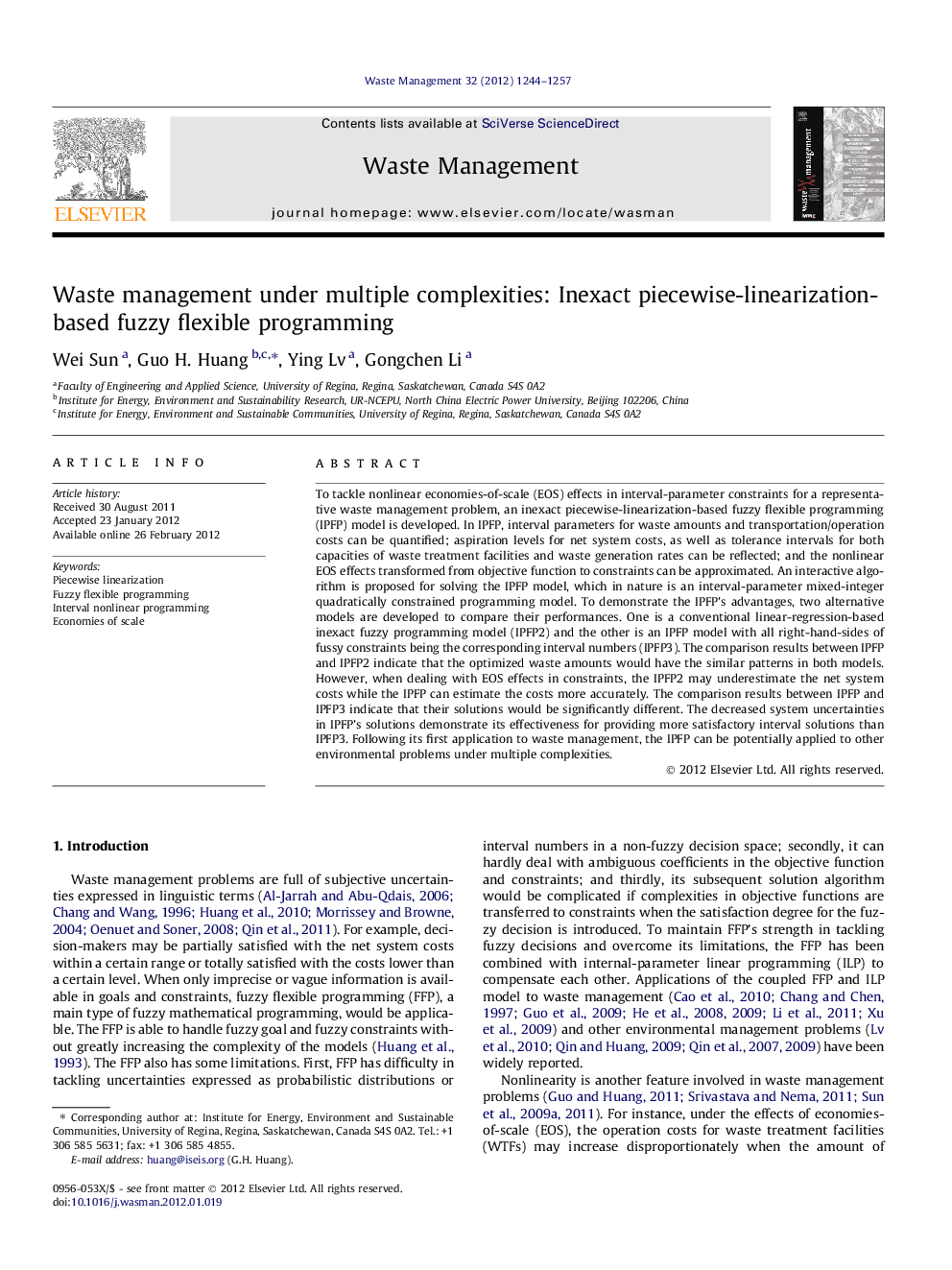| Article ID | Journal | Published Year | Pages | File Type |
|---|---|---|---|---|
| 4471814 | Waste Management | 2012 | 14 Pages |
To tackle nonlinear economies-of-scale (EOS) effects in interval-parameter constraints for a representative waste management problem, an inexact piecewise-linearization-based fuzzy flexible programming (IPFP) model is developed. In IPFP, interval parameters for waste amounts and transportation/operation costs can be quantified; aspiration levels for net system costs, as well as tolerance intervals for both capacities of waste treatment facilities and waste generation rates can be reflected; and the nonlinear EOS effects transformed from objective function to constraints can be approximated. An interactive algorithm is proposed for solving the IPFP model, which in nature is an interval-parameter mixed-integer quadratically constrained programming model. To demonstrate the IPFP’s advantages, two alternative models are developed to compare their performances. One is a conventional linear-regression-based inexact fuzzy programming model (IPFP2) and the other is an IPFP model with all right-hand-sides of fussy constraints being the corresponding interval numbers (IPFP3). The comparison results between IPFP and IPFP2 indicate that the optimized waste amounts would have the similar patterns in both models. However, when dealing with EOS effects in constraints, the IPFP2 may underestimate the net system costs while the IPFP can estimate the costs more accurately. The comparison results between IPFP and IPFP3 indicate that their solutions would be significantly different. The decreased system uncertainties in IPFP’s solutions demonstrate its effectiveness for providing more satisfactory interval solutions than IPFP3. Following its first application to waste management, the IPFP can be potentially applied to other environmental problems under multiple complexities.
► Inexact piecewise-linearization-based fuzzy flexible programming is proposed. ► It’s the first application to waste management under multiple complexities. ► It tackles nonlinear economies-of-scale effects in interval-parameter constraints. ► It estimates costs more accurately than the linear-regression-based model. ► Uncertainties are decreased and more satisfactory interval solutions are obtained.
